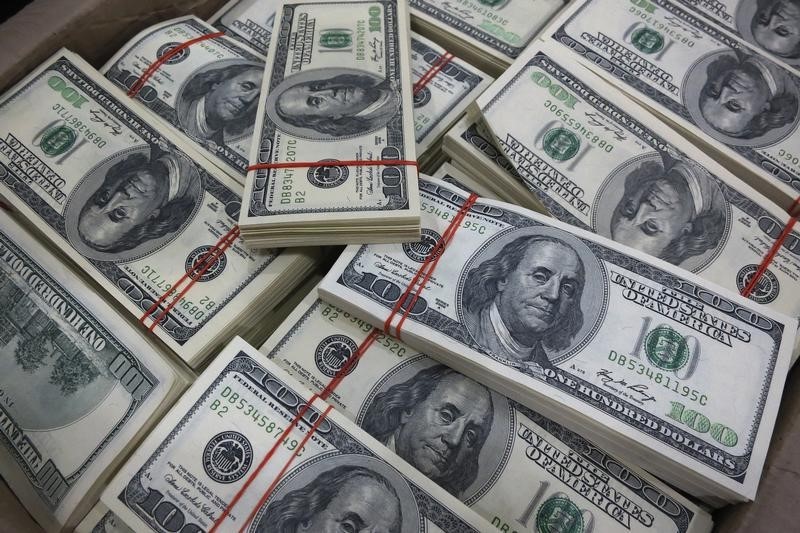Investing.com – The dollar opened the week by sliding against other Asian currencies, giving up gains from last week.
After rising to this year’s high of 94.21 on Friday, the U.S. dollar index, which measures the value of the dollar against a basket of six major currencies, fell during Monday morning trade in Asia as the market dealt with uncertainty over a U.S.-North Korea summit. The uncertainty boosted demand for the Japanese yen, generally seen as a safe haven currency.
The U.S. dollar index stood at 93.87, down 0.36%, at 11:42PM ET (03:42 GMT).
Geopolitics continued to be the directional driver for the dollar and the yen. U.S. President Donald Trump suddenly canceled a meeting with North Korean leader Kim Jung Un last week, but Pyongyang and Washington are reportedly still pressing ahead on plans for a summit.
After the initial reaction to the shift in geopolitical concerns, dollar traders are also watching closely economic data due this week in the U.S., which includes GDP growth figures on Wednesday and the Non-Farm Payrolls report on Friday.
The USD/JPY pair gained 0.02% to 109.40. While the pair was rising slightly in late morning, risk aversion increased demand for the yen overall. Investors who bought the yen to avoid risks could sell out the currency if tensions between the U.S. and North Korea ease.
In Australia, the AUD/USD pair gained 0.32% at 0.7571.
In China, the People's Bank of China set the set the reference rate for the yuan against the dollar, the mid-point from which the currency is allowed to trade, at 6.3962 versus the previous day's 6.3867. The USD/CNY pair stood flat to trade at 6.3891.
